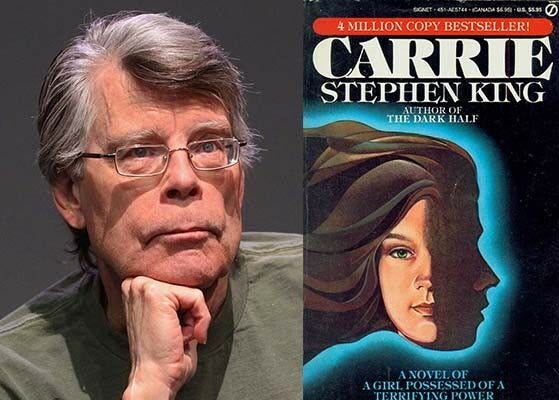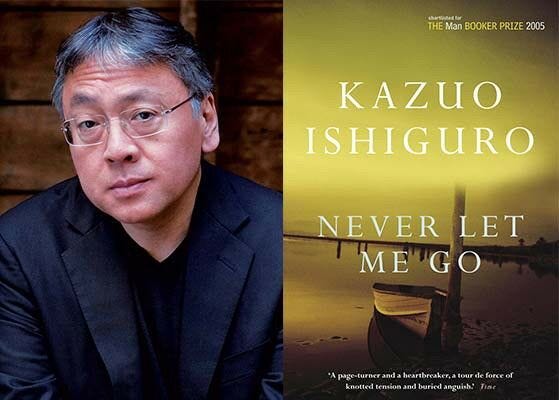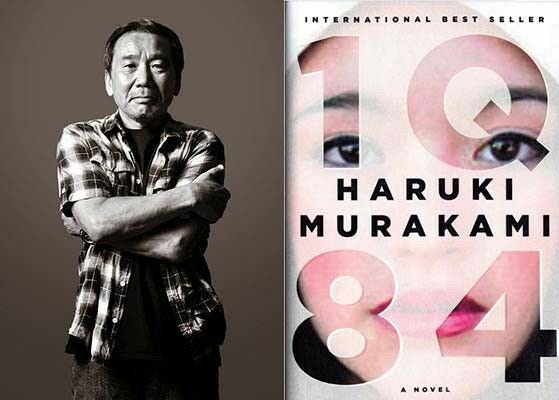5 Writing Tips From Today's Famous Authors
- By Andrew Jacobs
- Sep 16, 2015
5 Writing Tips From Today's Famous Authors
Looking for some writing tips from famous authors? Ernest Hemingway wrote classics like A Farewell to Arms standing up; Breakfast at Tiffany’s writer Truman Capote wrote lying down. The daily routines of these classic novelists have long been mined for tips and tricks for creating your own Great American Novel, but what about today's famous authors? Check out the daily routines of these writers, and then take a page out of their book! Here are some writing tips from famous authors. 1. A Visit From the Goon Squad author Jennifer Egan doesn’t write on a computer, and doesn’t even write at a desk. The Pulitzer Prize winner prefers to work in a lounge chair, scribbling first drafts – such as those for The Keep or The Invisible Circus – on legal pads. She calls this early process “outright flailing around” and tries to write 5 to 7 pages of original prose a day.
TIP: First drafts are supposed to be messy – penmanship-wise and craft-wise. If plots change course, characters disappear or tone takes a drastic turn, settle all that in the next draft.
1. A Visit From the Goon Squad author Jennifer Egan doesn’t write on a computer, and doesn’t even write at a desk. The Pulitzer Prize winner prefers to work in a lounge chair, scribbling first drafts – such as those for The Keep or The Invisible Circus – on legal pads. She calls this early process “outright flailing around” and tries to write 5 to 7 pages of original prose a day.
TIP: First drafts are supposed to be messy – penmanship-wise and craft-wise. If plots change course, characters disappear or tone takes a drastic turn, settle all that in the next draft.
 2. Stephen King, who has been churning out horror classics like Cujo and Carrie for the past 30 years, sticks to the old idiom “a place for everything, everything in its place”. King says that he simply sits in the same spot, with all of his papers arranged in the same places, with a cup of tea nearby. He writes 10 pages every day, even on holidays.
TIP: Keep it simple! Writing is hard work, so simplify your work space. Make sure there’s room to create by being clutter-free.
2. Stephen King, who has been churning out horror classics like Cujo and Carrie for the past 30 years, sticks to the old idiom “a place for everything, everything in its place”. King says that he simply sits in the same spot, with all of his papers arranged in the same places, with a cup of tea nearby. He writes 10 pages every day, even on holidays.
TIP: Keep it simple! Writing is hard work, so simplify your work space. Make sure there’s room to create by being clutter-free.
 3. Known for his lush details and settings, Kazuo Ishiguro writes in a fittingly custom-designed office in his home. Even if regarded as one of the most celebrated contemporary fiction authors in the world for novels like Never Let Me Go and The Remains of the Day, Ishiguro’s office computer is a decade old and isn’t even connected to the internet. His manuscripts and research are organized in color-coded binders kept in cubby shelves.
TIP: In order to connect your imagination to the words on the page, disconnect. Stay off the internet and turn off your phone.
3. Known for his lush details and settings, Kazuo Ishiguro writes in a fittingly custom-designed office in his home. Even if regarded as one of the most celebrated contemporary fiction authors in the world for novels like Never Let Me Go and The Remains of the Day, Ishiguro’s office computer is a decade old and isn’t even connected to the internet. His manuscripts and research are organized in color-coded binders kept in cubby shelves.
TIP: In order to connect your imagination to the words on the page, disconnect. Stay off the internet and turn off your phone.
 4. Reading brain-bursting novels like The Wind-Up Bird Chronicle and 1Q84 require athleticism which writer Haruki Murakami incorporates into his regular routine. After waking up at 4 a.m. to type for five or six uninterrupted hours, Murakami runs seven miles and swims laps. He stresses that physical strength is “as necessary as artistic sensitivity” in the writing process.
TIP: Writing a novel (and waking up to do so) takes discipline and drive. Don’t get lazy!
4. Reading brain-bursting novels like The Wind-Up Bird Chronicle and 1Q84 require athleticism which writer Haruki Murakami incorporates into his regular routine. After waking up at 4 a.m. to type for five or six uninterrupted hours, Murakami runs seven miles and swims laps. He stresses that physical strength is “as necessary as artistic sensitivity” in the writing process.
TIP: Writing a novel (and waking up to do so) takes discipline and drive. Don’t get lazy!
 5. Writer of the most polarizing novel in recent pop culture memory, Gone Girl author Gillian Flynn has a writing routine that is fittingly bizarre. Flynn works in a makeshift office in her unfinished basement (lovingly called “the hell pit”) in the morning and early afternoon. After a “writing binge”, Flynn shakes off a story’s grizzly subject matter and winds down by listening to Singin’ in the Rain.
TIP: Don’t take your work home with you – even if you’re already in your house. Distance yourself from your story for hours at a time, so you don’t burn out and leave your draft unfinished. You can always return the next day to write and edit with fresh eyes.
Thanks for reading about writing tips from famous authors!
Tackle your next writing session with these tips (and keep JAM journals, pens and binders on hand)! Now get writing!
5. Writer of the most polarizing novel in recent pop culture memory, Gone Girl author Gillian Flynn has a writing routine that is fittingly bizarre. Flynn works in a makeshift office in her unfinished basement (lovingly called “the hell pit”) in the morning and early afternoon. After a “writing binge”, Flynn shakes off a story’s grizzly subject matter and winds down by listening to Singin’ in the Rain.
TIP: Don’t take your work home with you – even if you’re already in your house. Distance yourself from your story for hours at a time, so you don’t burn out and leave your draft unfinished. You can always return the next day to write and edit with fresh eyes.
Thanks for reading about writing tips from famous authors!
Tackle your next writing session with these tips (and keep JAM journals, pens and binders on hand)! Now get writing!5 Writing Tips From Today's Famous Authors
If you're an aspiring writer or simply looking to improve your writing skills, learning from the best is always a great idea. In this blog post, we'll explore five valuable writing tips from some of today's most famous authors. From crafting compelling characters to mastering the art of storytelling, these tips are sure to inspire and elevate your writing game. Whether you're a novelist, journalist, or content creator, incorporating these insights into your writing process can help you connect with your audience on a deeper level and create impactful work that resonates with readers.
Understanding the Importance of Character Development
One of the key elements of great storytelling is the ability to create compelling and relatable characters. Famous authors often emphasize the importance of character development in their writing, as it allows readers to connect with the story on a personal level. By delving into the intricacies of your characters' personalities, motivations, and flaws, you can breathe life into your narrative and make it more engaging for your audience. Whether you're writing fiction or non-fiction, taking the time to develop well-rounded characters can significantly enhance the impact of your work.
The Power of Authenticity in Writing
Authenticity is a crucial aspect of effective writing, and today's famous authors understand the value of staying true to their voice and perspective. When crafting your own work, it's essential to embrace your unique style and experiences, as this authenticity can resonate with readers in a profound way. By infusing your writing with genuine emotion, honesty, and vulnerability, you can create a powerful connection with your audience and leave a lasting impression. Whether you're sharing personal stories or tackling complex topics, authenticity can elevate your writing and make it more impactful.
Exploring Alternative Writing Styles and Techniques
While it's important to develop your own writing style, exploring alternative techniques and styles can broaden your creative horizons and enhance your skills. Today's famous authors often encourage aspiring writers to experiment with different genres, narrative structures, and literary devices to expand their repertoire. By stepping out of your comfort zone and embracing new challenges, you can discover fresh perspectives and approaches that enrich your writing. Whether it's trying your hand at poetry, flash fiction, or experimental prose, embracing alternative writing styles can fuel your creativity and inspire innovative work.
Practical Tips for Overcoming Writer's Block
Writer's block is a common challenge that many writers face, and today's famous authors have valuable insights on overcoming this creative hurdle. Whether it's establishing a consistent writing routine, seeking inspiration from diverse sources, or taking breaks to recharge, there are numerous strategies for navigating writer's block. By implementing practical tips and techniques, such as free writing, mind mapping, or engaging in creative exercises, you can break through mental barriers and reignite your creativity. Overcoming writer's block is essential for maintaining momentum and productivity in your writing journey.
Embracing the Power of Revision and Editing
Revision and editing are integral parts of the writing process, and today's famous authors emphasize the importance of refining and polishing your work. Whether it's revisiting your drafts with a critical eye, seeking feedback from trusted peers, or honing your language and structure, the art of revision can elevate your writing to new heights. Embracing the power of editing allows you to fine-tune your ideas, strengthen your narrative, and ensure that your message resonates with clarity and impact. By approaching revision as an opportunity for growth and improvement, you can transform your initial drafts into polished, compelling pieces of writing.
















